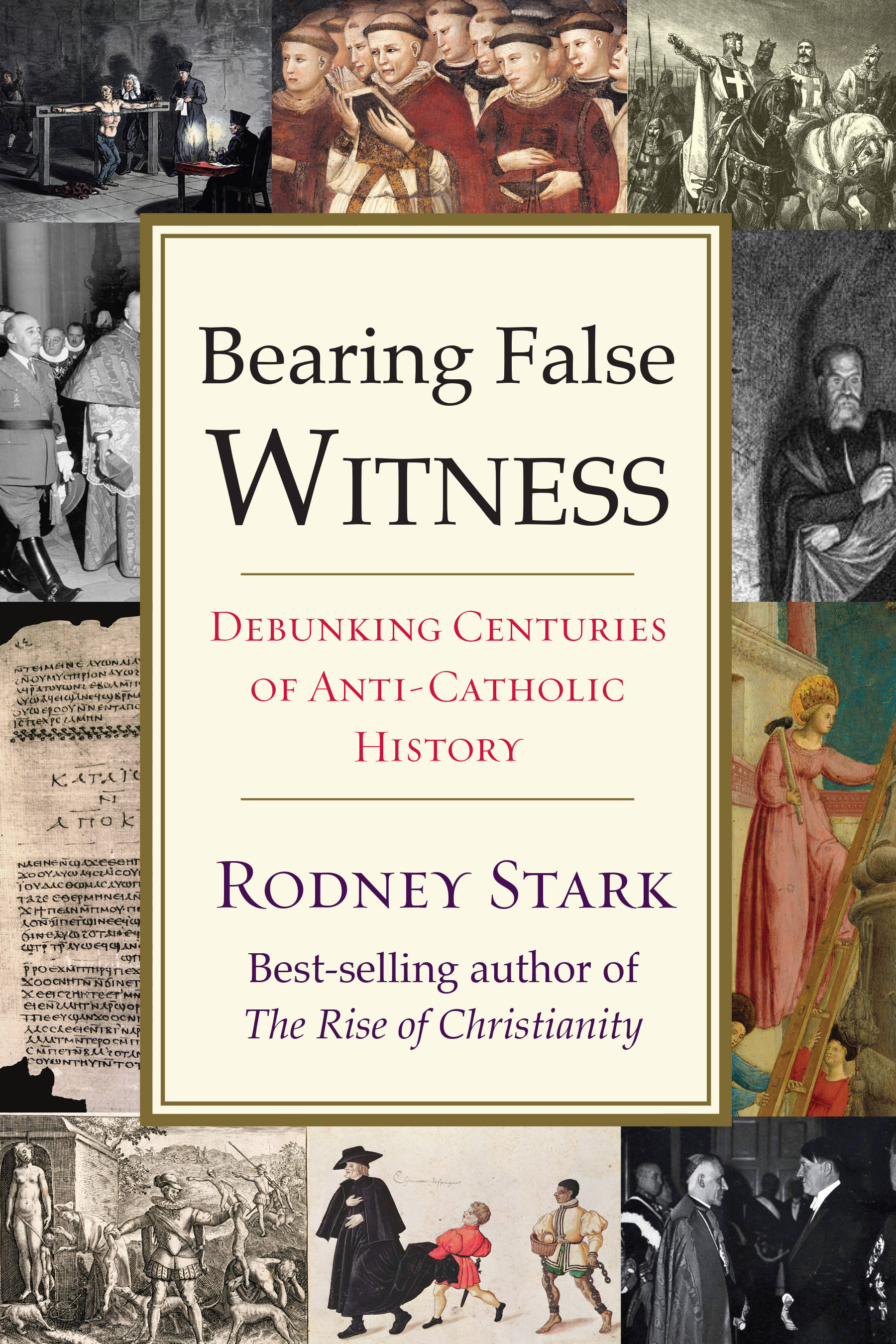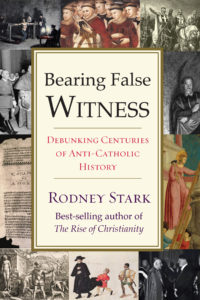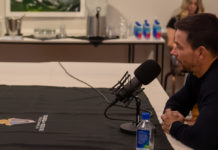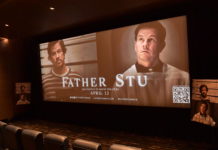[quote_box_right]
‘Bearing false witness: Debunking centuries of anti-Catholic history’
Author: Rodney Stark
Publisher: Templeton Press
Length: 256 pages
Release Date: May 16, 2016
ISBN: 978-159947991
Website: templetonpress.org
[/quote_box_right]
[dropcap]N[/dropcap]owadays, we hear it on the news, read it in the newspapers and magazines, and even hear from our non-Catholic friends and family: the Church did this, the Church did that, the Church is responsible for many of the ills in this postmodern age.
What causes this?
Rodney Stark calls the problem “anti-Catholic” history in his new book, “Bearing false witness: Debunking centuries of anti-Catholic history.”
Anti-Semitism, suppression of gospels, persecution of pagans, imposing the Dark Ages, the Crusades and the current jihadist fury, the Inquisition, the war with science, the blessing of slavery, and Protestant modernity are all blamed on the Church. Guess who “Hitler’s Pope” was?
Many of these things are almost automatically accepted by many of us because progressive society rains the blame down like God did water for Noah.
Take anti-Semitism. In AD 590, Pope Gregory wrote that it was the duty of Catholics and all Christians to protect Jews. Never mind that or Nostra aetate, promulgated out of Vatican II, recognizing that although some Jews during the time of Jesus, especially the Jewish authorities, called for His death, that no blame can be leveled at the rest of Jews then or throughout time. Christian knights, especially those in the Rhineland, persecuted and killed Jews by the hundreds. Bishops called for peace, bishops called for calm but it was still considered the fault of the Church because Scripture states the fact that Jews persecuted Jesus (John 5:15-18):
“Therefore, the Jews began to persecute Jesus because he did this on a sabbath. But Jesus answered them, ‘My Father is at work until now, so I am at work.’ For this reason the Jews tried all the more to kill him, because he not only broke the sabbath but he also called God his own father, making himself equal to God.”
Scripture said it, so the Church did it.
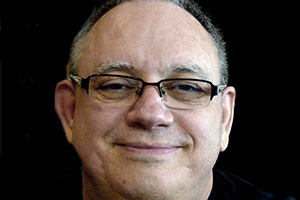
This is much like “Hitler’s Pope,” Pius XII. Pius appeared neutral as fascists and then the Nazis conquered Rome. In fact, the Soviet papers called the Pope a great supporter of Nazism. The New York Times countered but the stage was set until after the war when the scope of Pius XII’s incredible efforts to save Jewish lives using convents, monasteries, underground railroads, and all other possible methods were revealed.
We hear about the Church imposing of the Dark Ages — with Galileo as the example — and do not realize that while the Church tread carefully as new scientific methodologies began to explore Creation, many of its religious orders kept science, philosophy, and literature alive during those years. St. Albert Magnus, a good Dominican, is considered the father of modern science with his many investigations of the various natural sciences. St. Thomas Aquinas, another fair Dominican, took command of philosophy in those days, reconciling Aristotelian philosophy with Christian theology — no small accomplishment.
The Crusades are another of those historically-significant events that echo in the modern era. After 9/11, some politicians, including former President Bill Clinton, began to point back — over a thousand years — to find the source of jihadist fury. Of course, for 300 years prior to the first Crusade in 1099, Islamic forces conquered much of southern Europe, including the sack of Rome and the destruction of the Church of the Holy Sepulchre in Jerusalem. Christian leaders sent urgent requests for aid in defending their lands from the Saracens. Finally, Christian knights were sent to the conquered territories to run the Muslims off and to save Jerusalem. Never mind that it took Christians 300 years to finally draw the line through the bloodied sands of Europe and the Middle-east. To former President Clinton, thus, “no, it wasn’t the Christians who started it.”
This book is about history and, according to the bibliography and the notes in it, is a serious study. Ultimately I can say if any of you have accepted any of these historical inaccuracies, this book is nearly a requirement because it will set you straight; besides, the book is a really interesting read.



